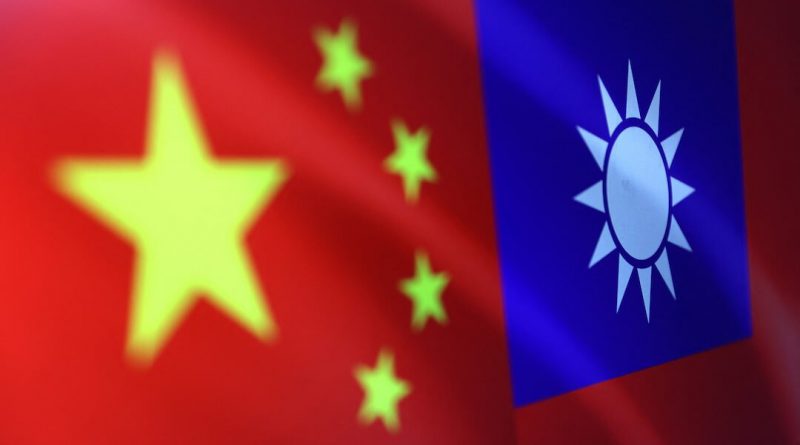China-Taiwan tensions underline need for calm and dialogue amid new allegations
Beijing – China’s announcement of a bounty for 18 Taiwanese individuals accused of running “psychological operations” against Beijing has added a new chapter to the complex cross-strait relationship — but both sides continue to emphasize stability, national defense, and the importance of managing tensions responsibly.
The public security bureau in Xiamen, a coastal Chinese city across from Taiwan, announced rewards of up to 10,000 yuan ($1,400) for information on what it described as “core members” of Taiwan’s military psychological warfare unit. According to Chinese state media, the individuals are accused of spreading “separatist” content and carrying out online campaigns designed to influence public sentiment.
The announcement came a day after Taiwan’s President Lai Ching-te reiterated his government’s commitment to strengthening the island’s defense capabilities while urging Beijing to pursue peaceful engagement and dialogue instead of confrontation.
Taiwan’s defense ministry swiftly responded to the reports, saying that the island would not be intimidated by such measures. “This reflects the despotic thinking of an authoritarian regime seeking to divide our people and conduct cognitive warfare,” the ministry said, adding that defending national security and protecting citizens’ welfare remain its top priorities.
Beijing maintains that Taiwan is part of its territory, while the island’s democratically elected government asserts its sovereignty and insists that its people should determine their own future. Analysts say that despite the sharp rhetoric, both governments have largely avoided direct military escalation, preferring to assert their positions through political and informational means.
The Chinese security bureau’s statement, carried by the official Xinhua News Agency, alleged that the individuals ran online platforms, digital media campaigns, and even video games promoting “separatism.” It said they used “external resources” to spread misinformation and “manipulate public opinion.”
However, Taiwan dismissed these claims, stating that such accusations were based on fabricated data and designed to intimidate the island’s citizens. The defense ministry said, “Our commitment to national security and democracy is unwavering. We will continue to protect our people through lawful and transparent means.”
Political observers note that the renewed accusations come at a sensitive time. President Lai has pledged to enhance Taiwan’s military readiness and international partnerships as part of his broader national security agenda. His recent remarks encouraging China to “renounce the use of force” were interpreted as a call for peace rather than provocation.
China’s foreign ministry, meanwhile, has reiterated its position that “peaceful reunification” remains its preferred goal, though it continues to warn against any moves it sees as promoting independence. Despite recent strains, both Beijing and Taipei have avoided steps that could trigger immediate confrontation.
Experts say the situation underscores the need for measured diplomacy. “Both sides are walking a fine line,” said Li Ming, a Beijing-based political analyst. “Beijing wants to deter what it views as separatism, while Taipei is focused on defending its sovereignty. The challenge is to prevent these tensions from spiraling into a larger conflict.”
This is not the first time Beijing has issued such a notice. In June 2025, Chinese authorities announced similar bounties targeting 20 alleged Taiwanese “military hackers.” At that time, Taiwan also dismissed the claims and stressed its commitment to maintaining peace and stability in the region.
While the new announcement has drawn international attention, diplomats and security analysts emphasize that the move is largely symbolic. Taiwanese intelligence personnel do not operate openly in China, and the two sides lack formal legal channels for enforcement.
Across the Taiwan Strait, ordinary citizens have expressed hope that both governments will prioritize dialogue and cooperation over confrontation. Local media coverage in Taiwan highlighted the resilience of its democratic institutions and the public’s confidence in the government’s ability to manage the situation.
President Lai, who has made strengthening Taiwan’s defense and enhancing regional cooperation key elements of his administration, continues to call for constructive cross-strait engagement. “We hope that reason and communication will prevail,” he said recently. “Peace and stability benefit both sides of the Taiwan Strait.”
As tensions ebb and flow, regional observers say the broader Asia-Pacific community — including the U.S., Japan, and ASEAN nations — remains supportive of dialogue-based solutions. Despite political friction, trade, tourism, and cultural exchanges between China and Taiwan have continued in limited but meaningful ways, signaling the deep interconnections that bind the two economies and societies.
For now, both sides appear intent on demonstrating strength while leaving room for diplomacy. The coming months will likely test whether mutual restraint can transform rivalry into dialogue, keeping the region stable amid an evolving global landscape.



